AFL Sir Doug Nicholls Round
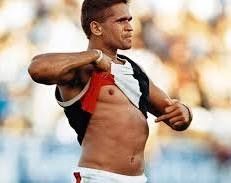
WHY WE NEED TO RE-EVALUATE "A FAIR GO".
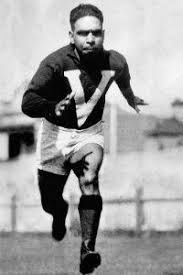
Local Background
A depiction of Batman's meeting with Wurundjeri people and the signing of Batman's treaty in 1835. John Wesley
Burtt, circa 1875, artist. Billibellary was one of the eight clan elders present.
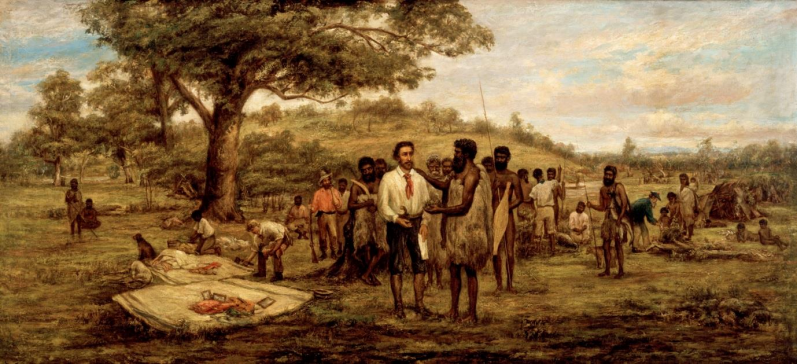
"Billibellary was an astute, diplomatic and visionary leader, described as tall and powerfully built with an influence and reputation that extended well beyond his clan (Ellender and Christiansen; Broome). He led his people through an incredibly difficult time of change. When John Batman explored the Yarra and its tributaries, he met Billibellary, one of the eight clan elders he signed a treaty with in 1835.
Coinciding with the early years of European settlements in the broader area, Billibellary was a respected elder in the Wurundjeri-willam clan, one of the clans forming a part of the Wurundjeri people and the original occupants of what are now the northern suburbs of Melbourne.
A clan was a group, perhaps 300-500 strong, composed of people who were all of one totemic division (or moiety).
His clan was one of five groups sharing a common dialect.
As Richard Broome also notes:
Each Aboriginal person had multiple identities, that of their moiety, clan, language group and confederation, which most European observers found almost impossible to fathom.
When the first Europeans arrived in the Bundoora area in 1835 (formerly the Parish of Keelbundora –
named after Keelbundoora, a young boy present at the signing of Batman’s treaty) they noted its
‘parkland’ appearance - well spaced trees with an understorey of grasses, herbs and forbs.
The area was surveyed in 1837 by William Wedge-Drake, principally to enable the sale of land.
Batman’s treaty was a catalyst for the rush of immigrants from Van Diemen’s Land, the proclamation of
the Port Phillip settlement in September 1835 and the beginnings of Melbourne town. The land
included all of Melbourne’s northern suburbs."
(From Springthorpe and La Trobe Heritage Project 2016)
This week is the annual AFL Sir Doug Nicholls round - constructed to recognise and celebrate indigineous athletes in football.
The AFL men's competition for 2023 is sorting wheat from chaff and Geelong the reigning Premiers are looking more vulnerable. But............
The women's competition is expanding, the suburban and country leagues, the school competitions are all back following Covid disruptions.
The unfinished business from 2022 and into the future are the harrowing allegations made about the treatment of certain young First Nations players, their partners and their families within a particular AFL club.
Hawthorn FC is simply the door most recently opened to reveal an ugliness lurking within the chambers of a major sporting body - allegations of demeaning behaviour, power deployed without regard for consequences.
This matter appears to have been assessed at a deliberately shallow level by the club concerned to simply substantiate that there is indeed a disturbing set of allegations that need to be thoroughly and competently investigated by others.
The problem is not a football problem. It is not an AFL problem. It is not a Hawthorn problem.
It is problem in our society. It needs rooting out.
Living in our midst here in Eaglemont is one of the First Nations men proud enough, indignant enough and brave enough to call out the overt racist hatred in a St Kilda v Collingwood match. Nicky Winmar pulled up his jumper and showed he was even prouder of his brown skin under that jumper.
On our TV screens have been screenings of the Adam Goodes documentary.
More recently Adam Goodes has been on TV promoting childrens books he has written in pursuit of racial understanding and harmony.
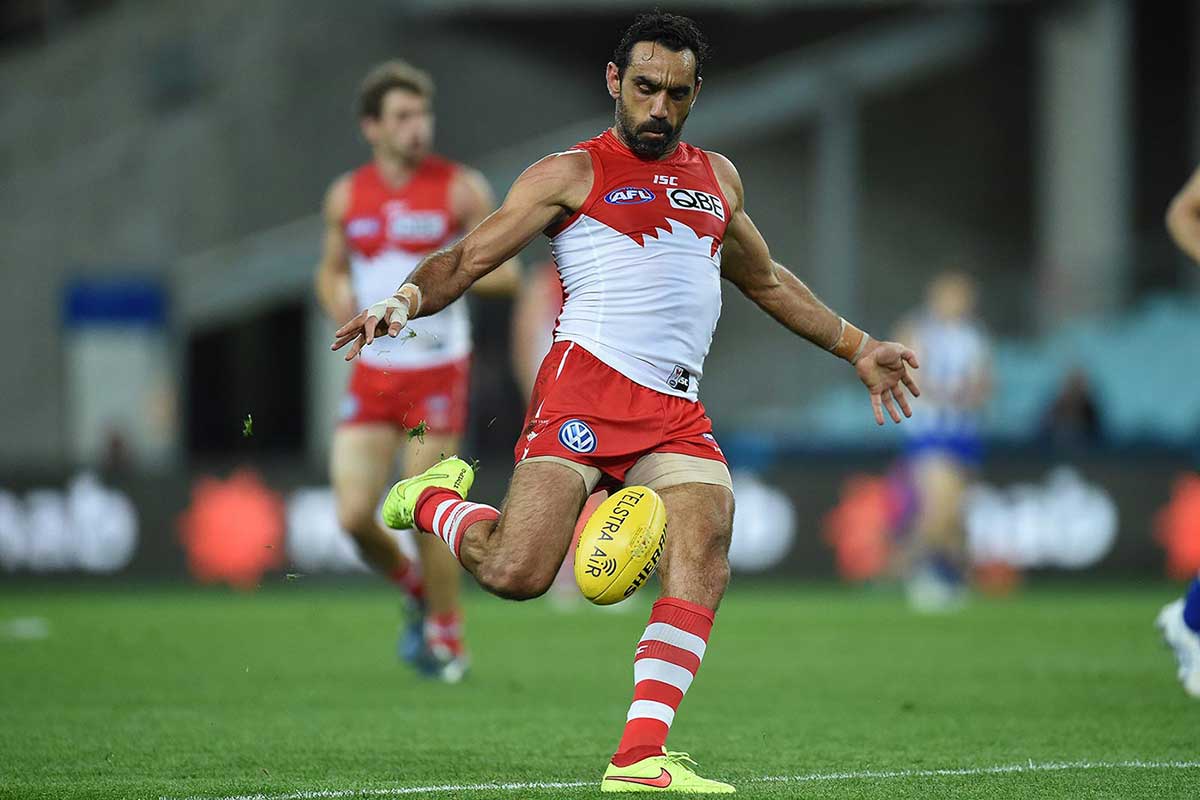
Adam is a Adnyamathanha (northern Flinders Ranges) and Narungga (Yorke Peninsula - your scribe's old childhood patch) man. Australian of the Year, 2 Brownlow Medals, 2 premiership medallions. Abject poverty to prominence through achievement in sport. A man who should be walking with his head held high, smiling and shaking hands in any company. Instead he avoids AFL because it triggers the humiliation, the alienation, the bewilderment of being abused - shouted, finger-pointing, personal abuse - because of his skin colour. A man as athletic as that, as skilled as that, as genial and modest as he is, made introspective and hurt by racist abuse.
Stan Grant of the ABC recounts a story of a First Nations athlete who treated himself to a new car. On the very first day of ownership he was pulled over by police 3 times on a presumption he must have stolen the car.
Now let's hear from Eddie Betts, one of the best footballers of his generation, with a smile the size of his skills........
FROM AFL360 INTERVIEW OF EDDIE BETTS
AFL great Eddie Betts has opened up on the harrowing moment he was asked to leave a public swimming pool because of his skin colour.
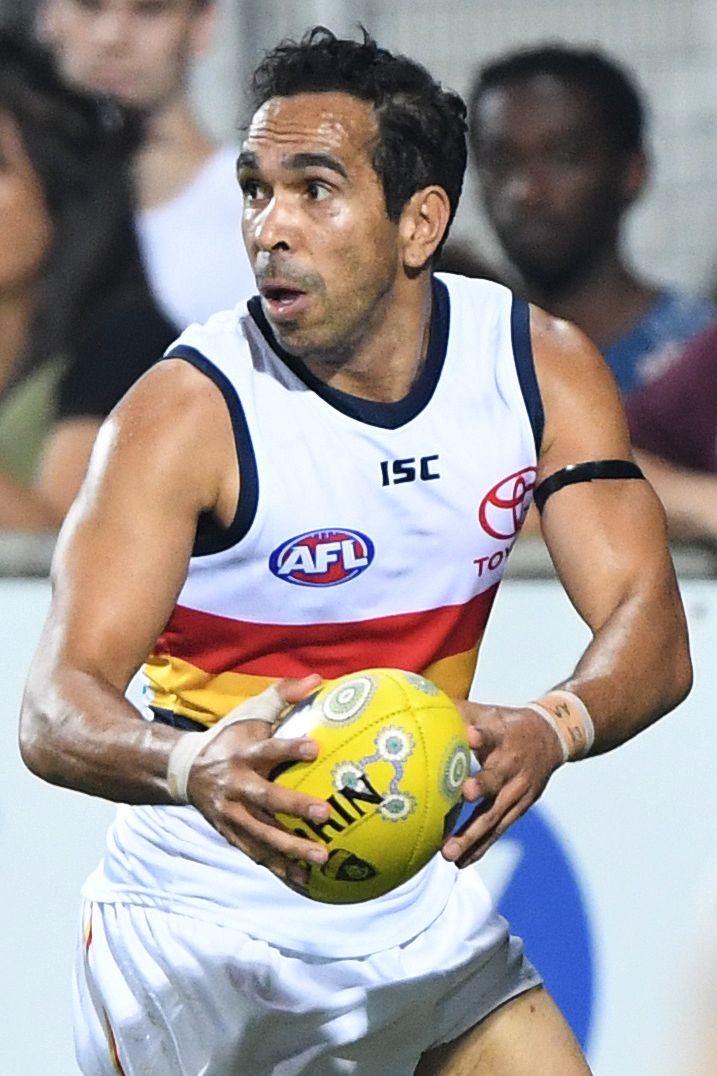
Betts confessed that he continues to encounter intolerance, declaring that he doesn’t feel like he belongs in Australia.
“I find myself being followed by security guards in a shop,” he said.
“This year, I was in a pool. And the lifeguard came up to me and told me that I needed to get out of the pool. I was holding my kid, my baby in my hand.
“I found out that two old white elderly people told the lifeguard to tell me to get out of the pool because I was making their grandchild uncomfortable.
“And that just made me feel like I don’t belong here in Australia, because these issues keep occurring.
“I honestly don’t feel like I belong here, but my wife keeps driving it into me and keeps telling me that out of anyone, you should feel like you belong here, out of everybody because this is your country, and you should never feel like that.”
Betts also delivered an emotional plea calling for the clubs to ensure the AFL is safe for young Indigenous kids.
“It was a tough read, reading that today, but I wasn’t surprised, to be honest,” he explained.
“Aboriginal people face these issues in many systems, in the education system, the justice system, in the health system. And it always comes back to what I’ve been preaching a lot, and that’s education.
“Every football club should do a review like this. Every football club should come out and do an external review. Contact the Indigenous players, past and present, and see how the footy club was.
“We keep coming back to this. We keep finding ourselves talking about it. You keep hearing me on this show. You know, preaching my heart out, when is it going to stop? When are we going to grow up? When are we going to learn? When are we going to educate ourselves?
The 35-year-old also revealed he knew one of the players who raised the Hawthorn allegations, praising the footballer for his bravery in speaking up.
“I will reach out to him. I am just going to tell him how brave he was and, ‘Thank you for speaking up and bringing this awareness to everybody’ because if he hadn’t spoken up we wouldn’t be going through this and people need to be educated.”
“And reconciliation, the theme this year was to be brave and make change, and it is hard and it is awkward to have those conversations. But you need to be brave. You need to step out of your comfort zone and start having these conversations calling it out.
“And until we do that, and that’s when we could make change and move forward. But if you know if you’re not brave, and you don’t call it out, then we’re not going to make any change.
“People are gonna believe what they are gonna believe, but I guess it is tough and it is hard.
“But I’m always gonna believe the players and the brothers.”
Many of us have views about what we think is wrong in First Nation's society.
Having brown skin is not one of them. Having pride and calling out racism is not one of them.
And this, folks, is an example of why Friends of Eaglemont Village - claiming since inception that we are a "stronger communities" organisation - will campaign for better inclusion of ALL marginalised groups and denigrated individuals in our sphere of influence.
We will promote opportunities for us all to move on from "thinking about it" to "doing something about it".
This does not equate to adopting what some commentators choose to call a "black arm band" view of history.
I know that personally I did not dispossess anyone of land, that I did not remove any First Nation child from its mother out in the desert or undertake any overtly discriminatory activities growing up in the country near the Point Pearce Aboriginal Reserve.
Did I do enough back then as a kid to be inclusive? Yes.
Did I do enough back then as a kid to call out racism in others? No.
I recognise that the sum of what has been done, and continues to be done, to First Nations, and other people, in this wide brown land since European settlement has been too often discriminatory to opportunity in every field, harmful to bodies and hurtful to psyches.
Enough.
Well I thought that was "Enough". Then along comes the tragic death of a 15 year old boy in Perth.
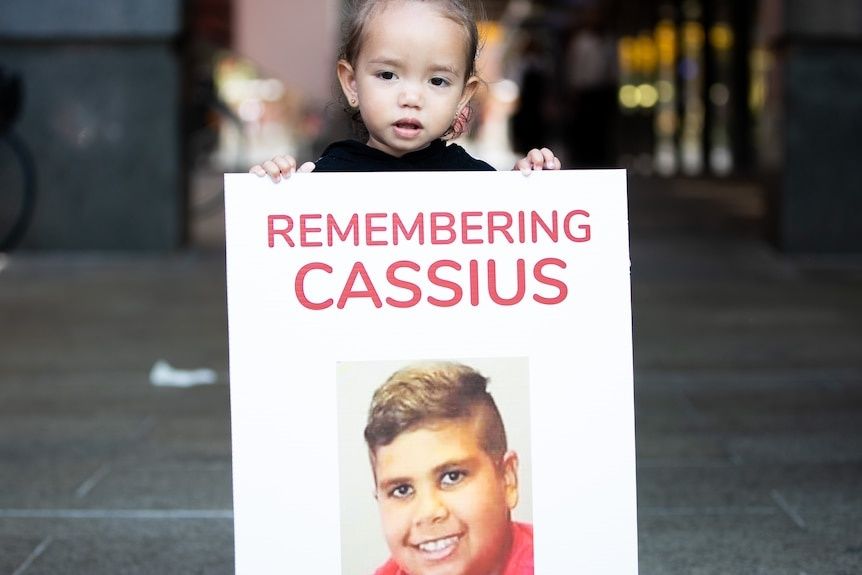
I know insufficient details of the matter, for which a man is charged with murder.
If as alleged a man alighted a vehicle with an iron bar or pipe and proceeded to hit a 15 y.o. boy about the head with it in front of witnesses, it suggests a terrible attitude toward the victim and his expectation of safety on the street mid-afternoon.
The victim was a First Nations boy, of whom only good things have been said.
Was his simply being dark skinned a trigger for the assault by an individual with a grievance? Much to be revealed, much to be considered.
Cassius Turvey died on October 23, 10 days after being allegedly attacked while he was walking with friends after school.
The 15-year-old boy's death sparked an outpouring of grief and support from the local community in the north-east of Perth.
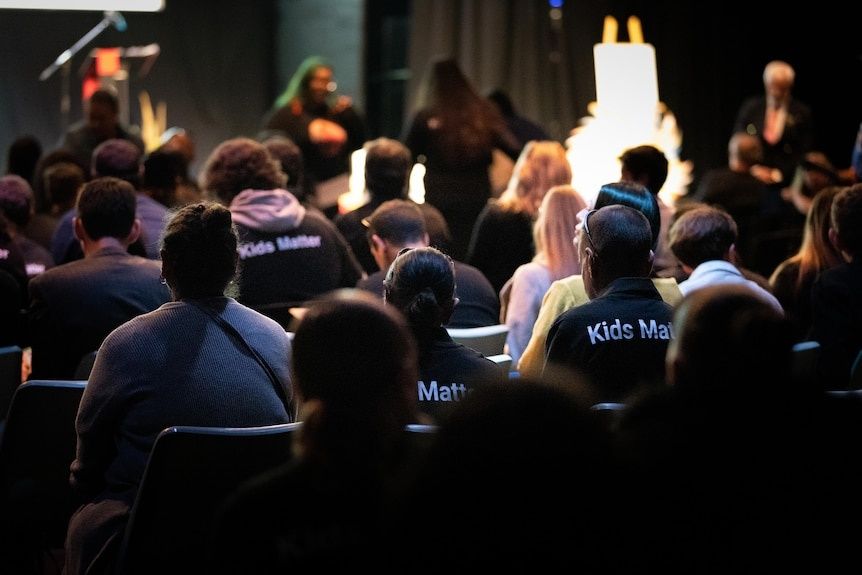
People attend the funeral wearing Kids Matter shirts.(ABC News: Cason Ho)
His name also spread far beyond Western Australia within days, with tributes being made in Canberra's parliament thousands of kilometres away.
Thousands attended rallies spanning the nation on November 2 in a national day of action in honour of Cassius.
More than $700,000 had been raised through donations for his mother.
Cassius was farewelled at a funeral service in Perth.(ABC News: Cason Ho)
Mrs Turvey said she intended to use the funds to set up a community initiative helping vulnerable and disadvantaged children. (Extract from ABC NEWS)
Make cup of tea, sit somewhere quiet, take a moment to reflect on your contacts - or lack of contacts - with First Nations people.
Can't change what has gone before - but what about the future?
Member discussion